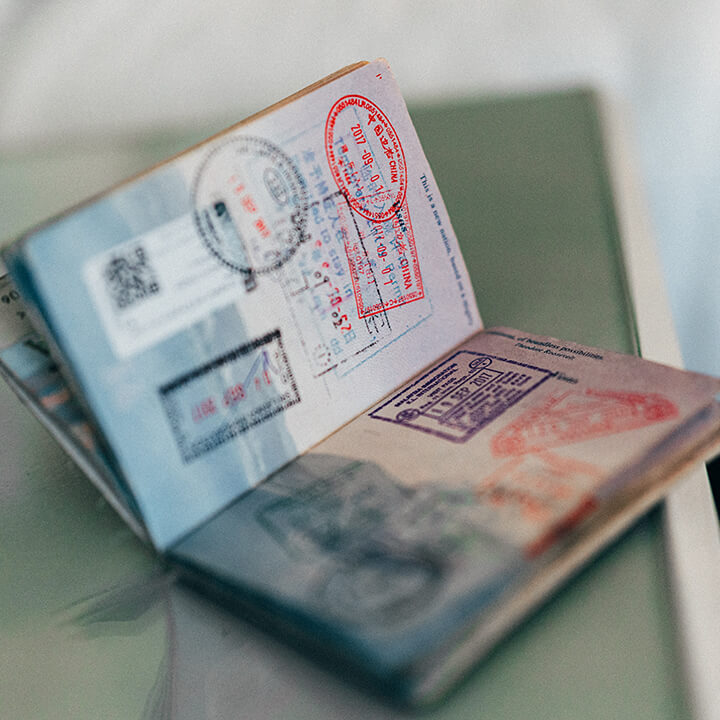Health and Care Worker Visa to Be Extended to Key Care Workers for 12 months
31st January 2022
This article was first published by The Carer.
Shabana Muneer (Director, Head of Business Immigration) and Mohamed Jama (Associate) from the Employment Team at Walker Morris, discuss the implications that the Health and Care Worker visa extension will have for the care sector.
The Government has recently announced an expansion of the Health and Care Worker visa for up to 12 months to allow care providers to recruit a wider range of overseas care workers to address critical skills shortages in the sector.

What’s changed?
Prior to the announcement in December, adult social care work has been considered “unskilled” by the Government which has resulted in care worker roles not being eligible for work based visas. However, due to the impact of the pandemic on the sector and the chronic gaps in the workforce (analysis of Government figures showed more than 40,000 social care staff left the sector in the six months to October 2021[1]), the Government has now confirmed that care work related roles will be eligible for sponsorship under the Health and Care Worker visa for an initial 12 month period, which will be reviewed later in 2022 to assess the impact. There is no suggestion that the visas themselves will be limited to this 12 month period (and can instead run for up to 5 years).
Care work roles that are now eligible for a visa
Individuals working in the following roles are likely to be eligible for the visa:
• Care assistant
• Care worker
• Carer
• Home care assistant
• Home carer
• Support worker (nursing home)
Why is this significant for the adult social care sector?
There are reports of thousands of care workers having left their jobs after refusing to get the Covid vaccine that was made mandatory for care home staff in November 2021, and many are currently off sick isolating with Covid, leaving care providers struggling to cope with staff shortages. According to some reports[2], this has led to 43% of care home providers closing to new residents and 66% of home care providers refusing new requests for home care, with 21% of home care providers handing back existing care packages. When coupled with the fact that freedom of movement for EU nationals ended on 31 December 2020, the pool of staff available to recruit from has significantly reduced over time.
What will it mean in practice?
In practice, it means recruitment for a wider range of health and care work roles can now take place overseas and therefore the number of potential candidates is greater. Care workers and carers recruited to the UK will be able to bring their family members, with the Health and Care visa offering a pathway to settlement should they remain employed for 5 years and wish to remain in the UK.
Because the care work roles will be added to the Shortage Occupation List, care providers will be able to benefit from the reduced minimum salary requirement of £20,480, thus making it cheaper for social care providers to hire the workers they need to fill gaps in their workforce than would otherwise be the case. Although sponsorship attracts fees, when compared to the financial implications of turning away contracts, as well as paying agency staff to fill labour shortages, who generally attract much higher hourly rates than direct employees, it may make sound financial sense.
Employers who are not registered with the Home Office as licenced sponsors will need to think about applying for a sponsor licence, which is a pre-requisite for being able to recruit non-UK / Irish and non-settled workers. The sponsor licence application process can be administratively burdensome and time-consuming, so we strongly advise care providers who are interested in hiring overseas care staff under the temporary visa scheme to start the process of applying for a sponsor licence now.
For businesses who already hold a sponsor licence, they will need to consider if their sponsor licence is fit for purpose to avoid falling foul of the Home Office’s onerous requirements, which have serious consequences if not adhered to.
How we can help
We have extensive experience of assisting businesses in a wide range of sectors (including the care sector) with sponsor licence applications, visa applications for their employees and with providing general advice on remaining compliant with the UK’s immigration system.
Please contact our Head of Business Immigration, Shabana Muneer if you would like to discuss how your business can take advantage of the Government’s immigration offering to the care sector, or if you have any other queries regarding UK immigration law.




